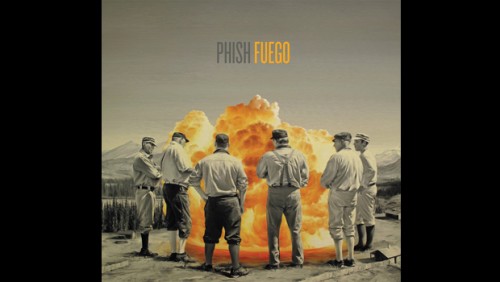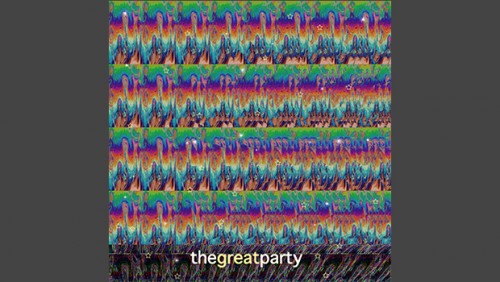By Michael Lello
One of the most unfortunate results of the constant comparisons of Phish to the Grateful Dead is the assumption that the band is only worth paying attention to in the live setting. Deadheads that ascribe to that tunnel vision have missed out on some good studio albums, and the same goes for Phish fans.
If they ignore “Fuego,” the band’s new studio effort, they’ll be ignoring one of the best moments of Phish’s career, a deep, diverse and focused record that rivals 1995’s “Billy Breathes,” heretofore the band’s studio high point.
One somewhat valid argument for dismissing Phish’s studio work was that the live versions of the songs were better anyway, and with the band allowing taping of its concerts, why buy an album full of watered-down versions of songs you when you can hear more exciting, extended versions for free?
Fair enough. But what if the studio albums are presented as something more than just blueprints for concert material, with aspects and nuances that can’t and won’t be recreated live?
For “Fuego,” Phish doubled down and brought in producer Bob Ezrin, who worked on legendary Pink Floyd and Alice Cooper records. The result is a Phish that is at once more relaxed and more succinct and an album that allows the individual members to shine like never before but also play together as an ensemble, an aspect of the band that had seemed to drift in recent years.
The opening track is the exploratory title song, clocking in at more than nine minutes. Jerky rhythms and an off-kilter piano-and-guitar melody set the stage for a cappella vocals on the verses. “Whoa” vocals over regal Page McConnell piano dot the chorus. Skittering drums, a la the classic Phish track “Llama,” then launch an organ/bass jam. The song fades out on Fishman’s light tom-toms and a one-note piano pattern.
Up next is “The Line,” one of “Fuego’s” myriad high points. Inspired by singer/guitarist Trey Anastasio’s watching a college basketball player miss a high-pressure free throw on TV, the song uses the sports metaphor for make-or-break moments. The disjointed verses give way to the smooth choruses, which, by the third time around, bring in drums to help give the track a sense of motion. Anastasio sings of “clinging to the notion you’ll be fine.”
“Devotion To A Dream” is simple yet poignant pop rock, while McConnell handles lead vocals on the plaintive “Halfway To The Moon.” “Winter Queen” possesses a hushed beauty befitting its title, with a muted horn part and a whispery guitar solo reminiscent of “Dirt” from Phish’s “Farmhouse” album.
Bassist Mike Gordon usually gets at least one shot at contributing a song to each Phish album, and the quirky musician rarely squanders the opportunity. “555” is his tune on “Fuego,” and it’s one of his best. Not surprisingly, it’s super funky, and it further drives home the point, via the addition of guests, that this is a studio album, not just a band trying to capture its live energy – there’s a nasty horn section and female backup vocalists, both flavors adding to the delicious gumbo of a song.
“Waiting All Night” is the album’s emotional centerpiece. Built on a vaguely Latin beat, all four band members trade lead vocals until the cathartic payoff of the chorus. This is where Anastasio would usually rip a blistering solo, but instead Phish engages in some of its best and most restrained ensemble playing to date, creating a hypnotic effect.
Most Phish albums seem to include at least one nonsense song, and reprising the role on “Fuego” is “Wombat.” “Wombat,” which features some serious funk musicianship by the band, will provide more ammunition for people who hate Phish and give the band’s fans more reason to embrace the group.
“Wingsuit,” initially the name of the album, closes “Fuego” in epic fashion. Restraint is key again – what Phish plays here is less important than the notes it doesn’t play – evoking the floating nature of the lyrics: “And gliding away, you fly where you choose/ There’s nothing to say and nothing to lose.” The song is marvelously arranged and flows along seamlessly despite some sectioning. Building piano and guitar over a foreboding drum pattern lead to a full stop, giving greater effect to the blistering yet tasteful Pink Floyd guitar solo Anastasio unfurls. It’s beautiful, song-oriented, mature ensemble playing, as is all of “Fuego.” It’s an album that deserves to be heard.
Rating: 79/81




Leave a Reply